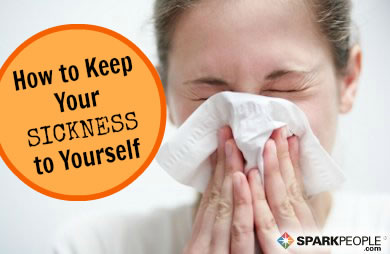
If you have a schedule that requires you to work long hours, you know that the side effects can feel all-consuming. With the stress of deadlines, work demands and the weight of the world on your shoulders, it can feel impossible to take any time at all just for yourself. And, while burnout and rising stress levels can both wreak havoc on your mental health, your physical health suffers when you work too hard or too much, often leading to unwanted weight gain.
Work can add weight—that’s the conclusion of a study which demonstrated a relationship between workload, exhaustion and emotional eating. It also found that exhaustion was negatively related to physical activity levels. Eating is often used to cope with negative emotions (exhaustion, stress) or a lack of self-control created by a difficult work situation, which means you may be reaching for more or higher-calorie bites throughout the day to silence other thoughts. If work is creating additional stress, it can also be hard to find the motivation for a workout at the end of a hard day. A similar study found that high job demands were a major risk factor for weight gain in women over a 20-year period.
There’s no denying that your job can have a direct impact on your health, but how do you decide if you’re headed down a path toward burnout or if you’re already there? PeopleOne Health, suggests asking yourself three key questions:
- Am I less interested in/motivated by/committed to the work that I am doing?
- Am I avoiding my work, co-workers or workplace as a result of this?
- Is this feeling or experience a change or shift from how I have historically related to my work or this position?
It's important to acknowledge that, while burnout may have come from overwork, it's not limited to that setting. Burnout often bleeds over from our professional lives into our personal lives, impacting our desire to relate to or engage with ourselves or others.
If some self-reflection has revealed a negative relationship with your current workload, the next step is problem-solving. What can you do if extra hours, stress or burnout on the job are negatively impacting your weight? Only you can be the judge of what you can do to improve the situation, but there are some things that might help.
- Look for areas of your life to simplify or consolidate so that you have time for things like healthy meal planning and workouts. For example, can you set aside a day to run all (or even most) of your errands, saving time and gas? Can you teach your kids to plan ahead so that you’re not heading to the store every other day? After you’ve created more free time, schedule your self-care tasks just like any other appointment in your day.
- Take a break from your television for a week—or even one day a week. You may be surprised to find yourself enjoying the quiet, picking up a book you've always meant to read or talking to your kids. At the very least, you may find yourself going to bed earlier when you feel tired, instead of spacing out in front of the T.V.
- Evaluate your work schedule and tasks. See which items require some overtime, and then try to plan one or two days to consciously work overtime to accomplish those tasks. You may still be working long hours, but you’ll have some control over your schedule, rather than being at someone else’s whims. You may even improve your efficiency.
- Plan for workday success. Pack your lunch and snacks so you aren’t tempted by takeout or the vending machine down the hall. Plan for a walking meeting with a co-worker, a workout at lunch or a few short fitness breaks throughout the day.
- Buddy up! Find a co-worker who has similar health goals and support each other throughout the day. That could mean eating your healthy lunches together when the rest of the office is going out or motivating each other to stick to the workout plan when you’re feeling tired or unmotivated.
- Take a good hard look at your job. Is it a good fit for you? While we all have areas of dissatisfaction in our work, it’s generally not normal to be continually exhausted and unhappy at the end of the day.
While there is no doubt that valuable stress reducers should always be a part of healthy habits, these strategies don't necessarily mitigate burnout,. The approach to burnout needs to be cultural and organizational, getting to the root of the issues that created the burnout in the first place. When we find the pain points and begin to shift them, even just a small amount, they have a significant impact. This could start with a conversation with your boss about how your job is affecting your health and what kinds of changes in the workplace might help not only you, but your co-workers as well.
There’s a difference between a job that’s challenging and one that breaks you down. If you’re experiencing symptoms of burnout, talk to your healthcare professional to determine if symptoms are rooted in stress or some other physical condition. It’s important to address what’s happening instead of ignoring your symptoms, hoping they will go away.













